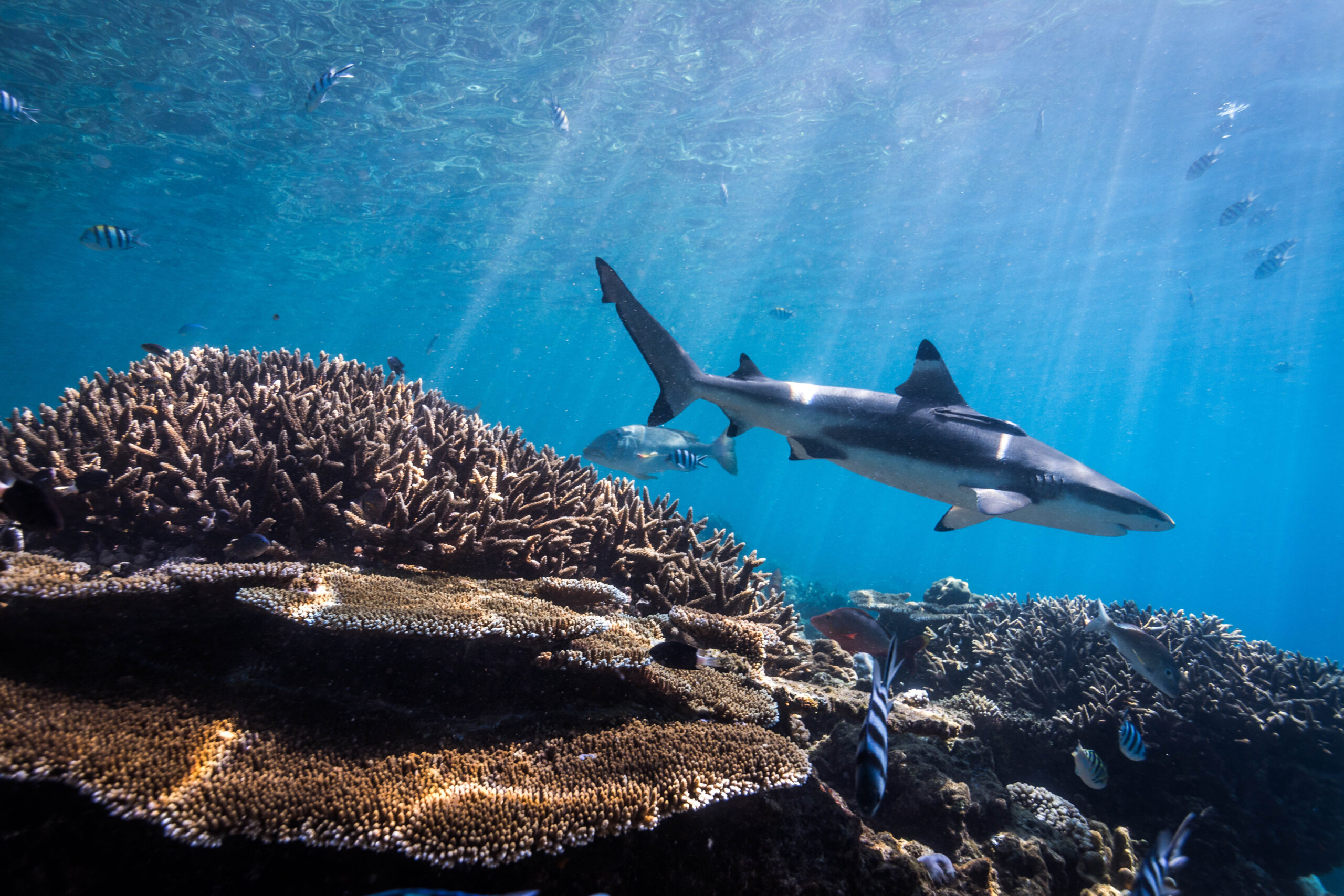In this article, the authors advocate for managing resilience of degrading ecosystems to reverse phase shifts from a macro-algal state back to a coral state, however they assert that it is unlikely that coral reefs will ever return to a pristine state. They suggest managing various factors- mainly managing herbivore fisheries- to support the resiliency of coral reefs during disturbance events. Citing an example in Kaneohe Bay, Hawaii, they discuss how a decades-long macro-algal state was shifted back to a coral state following a long period of time with no sunshine, leading to a algal die-off that was, importantly, supported by strong management regimes prohibiting herbivore fisheries. They discuss several fisheries management policies, such as gear restrictions or functional group restrictions (allowing catch of scarids and acanthurids while prohibiting catch of other important herbivores) that could reverse phase shifts. However, they emphasize the fact that these activities need to go hand-in-hand with global policy changes that slow climate change, and national policies that improve water quality.
Author:
Graham, N.A.J., D.R. Bellwood, J.E. Cinner, T.P. Hughes, A.V. Norström, and M. Nyström
Year: 2013
View Abstract
Email for the full article: resilience@tnc.org
Frontiers in Ecology and the Environment 11: 541–548. doi:10.1890/120305


